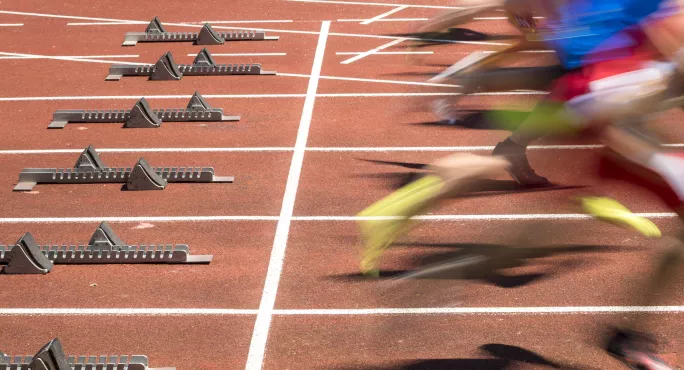Why schoolteachers need to know about sports doping

As an educator working for UK Anti-Doping (UKAD), the UK’s national organisation aimed at preventing doping in sport, I’m interested in what makes an athlete decide to compete “clean” and what, despite the consequences, makes an athlete cheat. It’s not just about testing and sanctions - it all starts a long way before that point. Fundamentally, it’s about education and values.
With the Tokyo 2020 Olympics and Paralympics now over, we have seen athletes competing at the top of their game - mostly. But there are also those rogue competitors who have been caught apparently trying to cheat.
For any of these athletes who go on to have an anti-doping rule violation (ADRV) associated with their name, it will mean not just personal shame, a lengthy ban and being stripped of a medal that may have won but a terrible blow to their families, their sport and their countries.
Related: 6 Olympics stories to inspire students across school
Physical education: Is PE the most important school subject of all?
Sporting role models: How our football heroes can open up the curriculum
Judy Murray: I want Andy and Jamie to leave a schools legacy
I firmly believe there are lessons that can and should be learned at a young age while at school about fair play, which are equally valuable to those who become elite sportspeople and to the rest of us in our everyday lives.
Doping in sport is far from being the sole domain of senior elite athletes. Often, doping practice may have more to do with body image and feelings of self-worth; social media and “perfect” body types, as seen on certain TV shows, help to perpetuate this.
Doping practice, then, can affect everyone in society, of any age, at any time - and from a young age.
If I talk to children and young people of school age about the downsides of supplements, mental health, fair play and clean sport, I rarely kick off by talking directly about doping. Instead, I start with values, chiefly the three Olympic values (excellence, friendship and respect), and four Paralympic values (courage, determination, inspiration and equality).
Globally, use of values-based education has become the go to for anti-doping, especially when working with children and young people during their formative years. In the UK, there are resources such as the Get Set online materials to help students aged five to 19 fulfil their potential and maintain healthy, active lives.
I often ask children to share examples of what they see as OK and not OK in sport. (They frequently pick a footballer and say “he dives!”) I love it when a child simply states “that’s not fair!”, as it says something important about their evolving value set.
I recall, while working abroad a decade or more ago, having breakfast with a team of teenage athletes when a local coach arrived at a neighbouring table. While we tucked into our food, his tray was full of multicoloured tablets that were handed out to his team of sporting children. The children swallowed their multiple tablets without question.
Now, thankfully, values-based anti-doping education in a PE context, as part of the curriculum or through pastoral teaching, is becoming increasingly widespread. This is welcome but we need to do more.
A teacher fundamentally understands the importance of values-based education, how it brings personal and situational relevance to augment learning, helping to foster fully rounded individuals and members of society.
The more that educators focus on values, the greater the chance of influencing the core emotional response to difficult situations and decisions - whether that relates to anti-doping or anything else.
Nigel Hetherington is education outreach worker for UKAD, the UK’s anti-doping body. He is based in Scotland
You need a Tes subscription to read this article
Subscribe now to read this article and get other subscriber-only content:
- Unlimited access to all Tes magazine content
- Exclusive subscriber-only stories
- Award-winning email newsletters
Already a subscriber? Log in
You need a subscription to read this article
Subscribe now to read this article and get other subscriber-only content, including:
- Unlimited access to all Tes magazine content
- Exclusive subscriber-only stories
- Award-winning email newsletters